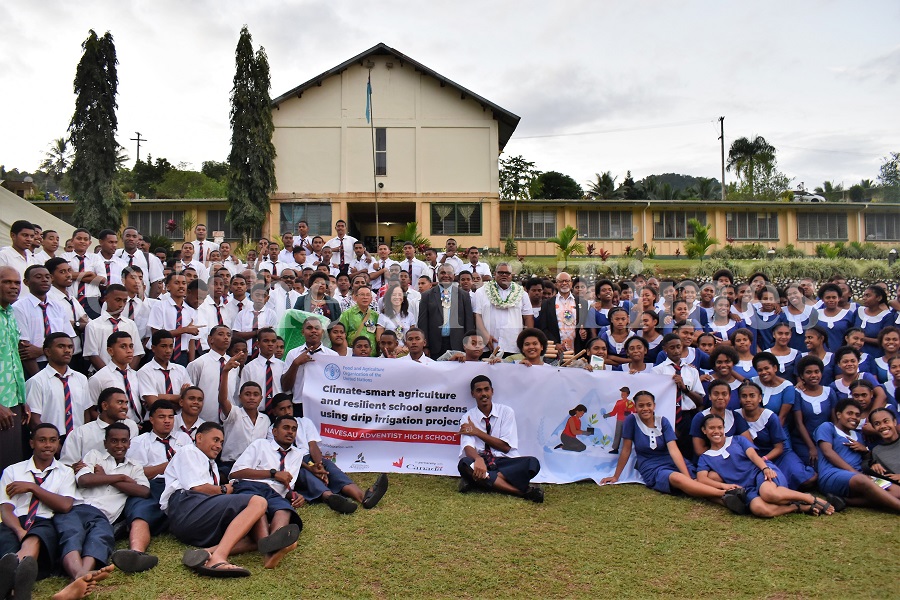Navesau Adventist High School in Wainibuka, Tailevu had their climate-smart agriculture and resilient school garden project commissioned last week.
The Canadian funded Food Agriculture Organization (FAO) project implements a comprehensive school garden that utilises drip irrigation techniques.
The project deliverables include developing training programs, land preparation, installation of the drip irrigation system, procuring necessary resources such as seeds and garden tools, providing classroom and practical training and monitoring plant development until the first harvest.
Agriculture Minister, Vatimi Rayalu in commissioning the project for the 287 students of the school said that the Agriculture Ministry strongly supported the establishment of school gardens.
“School gardens are outdoor classrooms,” he said.
“They help students learn how to grow their own food, compost organic waste and take care of plants and animals. They can also provide hands-on lessons about environmental issues such as water conservation or recycling.”
He said gardens also provide a platform for young and aspiring farmers and entrepreneurs.
“This project demonstrates that gardening can enrich the school curriculum and encourage schools to use it as a teaching tool,” he said.
“It is my hope that through this capacity building and empowerment program, students would have acquired lifelong skills.”
He encouraged the students; particularly girls who may decide to have their own farms and businesses in the future that the Ministry has a number of support programs that can help them make the transition.
“We need young bright minds like you to bring that passion and modernise to our agriculture sector,” he said.
“My Ministry stands ready to empower young people like you.”
Food Agriculture Organization assistant representative to Fiji, Joann Young said that funded by the Canadian Government the project is the biggest school garden project for FAO in Fiji.
Ms Young said FAO works hard to improve nutrition and makes sure that everyone everywhere has a healthy diet.
“FAO not only talks to grown-ups about food and healthy diets, but also helps schools to teach young people about healthy eating because after all, you are the grown-ups of the future,” she told students of Navesau.
“School gardens provide a space for students where they can actively learn about agriculture and nutrition and pick up new skills, including life skills.
“They provide school children with practical experience in sustainable food production and natural resource management, which serves as a source of innovation they can take home to their families and apply in their own household gardens and farms.
“They also improve school children’s nutrition by supplementing the school kitchen and canteen with a variety of fresh micronutrient and protein-rich products and increase children’s knowledge of nutrition to the benefit of the whole family.”
She thanked the school management for integrating school gardening into their curriculum ensuring adequate time was available for school gardening and related teaching activities.



